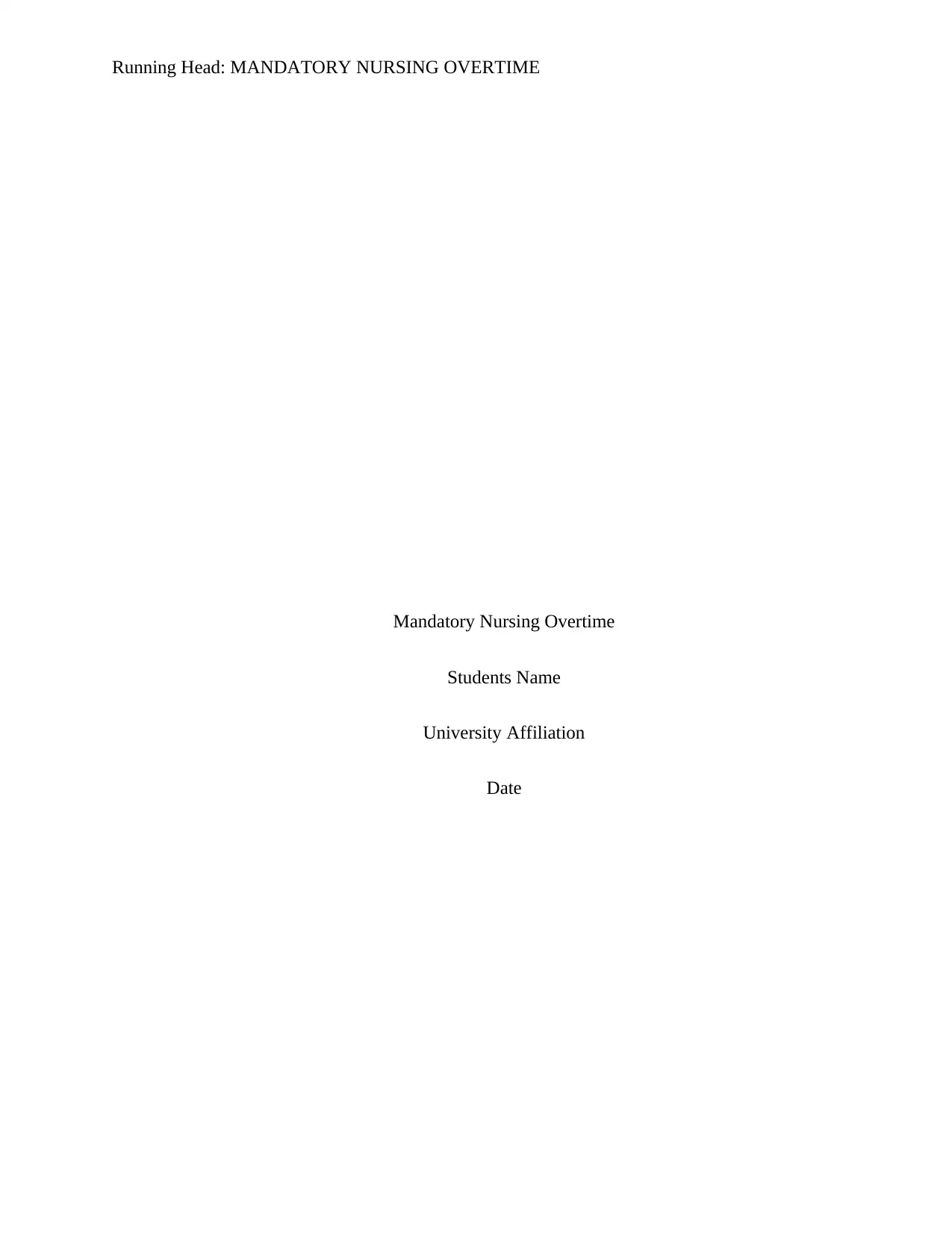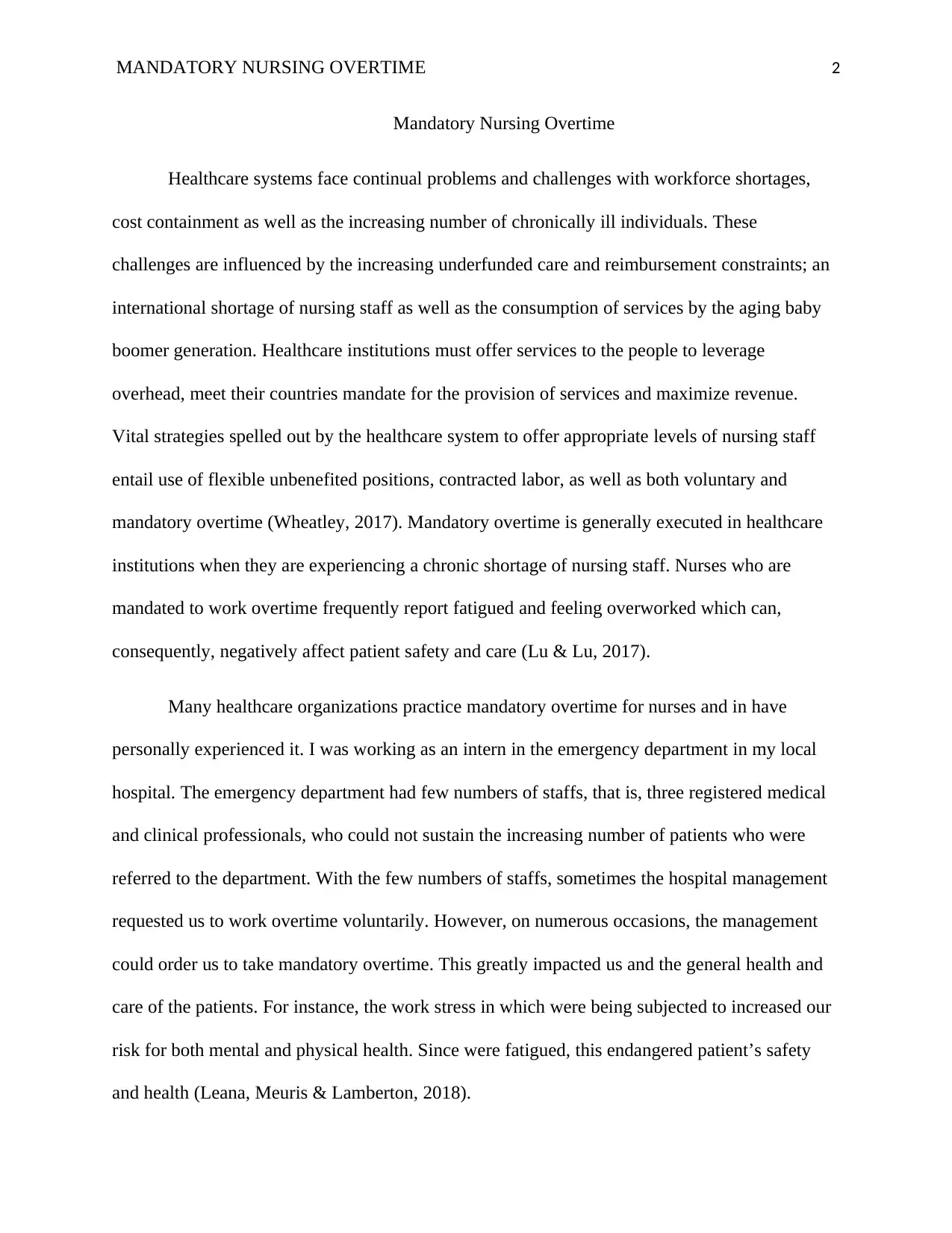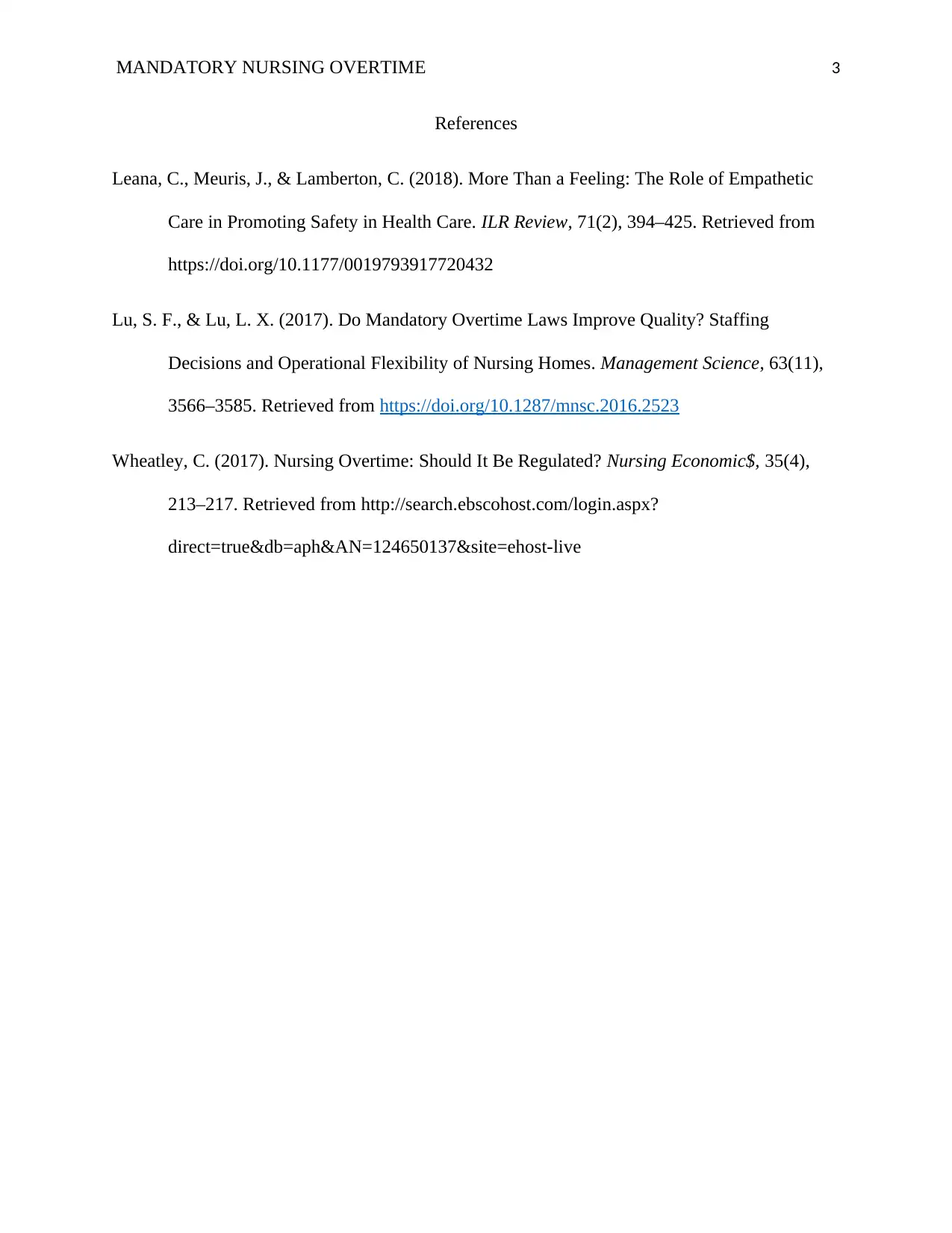University of [University Name] Nursing Report: Mandatory Overtime
VerifiedAdded on 2023/01/20
|3
|488
|54
Report
AI Summary
This report delves into the critical issue of mandatory overtime in nursing, examining its causes, consequences, and potential solutions. The report begins by outlining the challenges faced by healthcare systems, including workforce shortages and the increasing demands of an aging population, which often lead to mandatory overtime for nurses. It then focuses on the personal experience of the author, detailing their experience with mandatory overtime in an emergency department setting and the impact on patient care and the nurses themselves. The report highlights the increased work stress and potential for compromised patient safety associated with fatigued nurses. The author provides references to support the arguments made in the report. This report provides an overview of the impact of mandatory overtime on nurses and patient care, based on a real-world example and supporting research.
1 out of 3










![[object Object]](/_next/static/media/star-bottom.7253800d.svg)